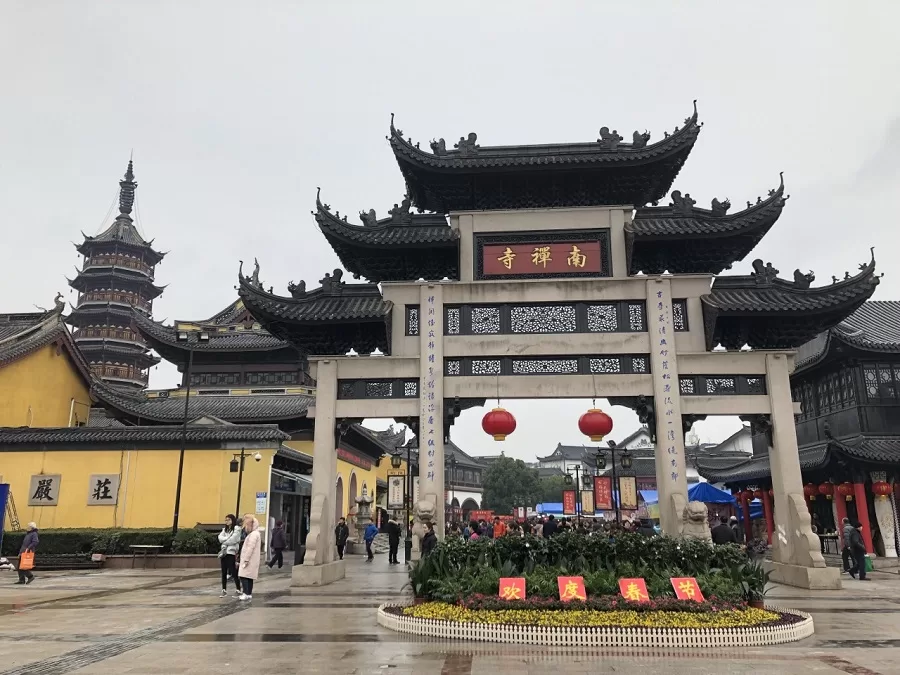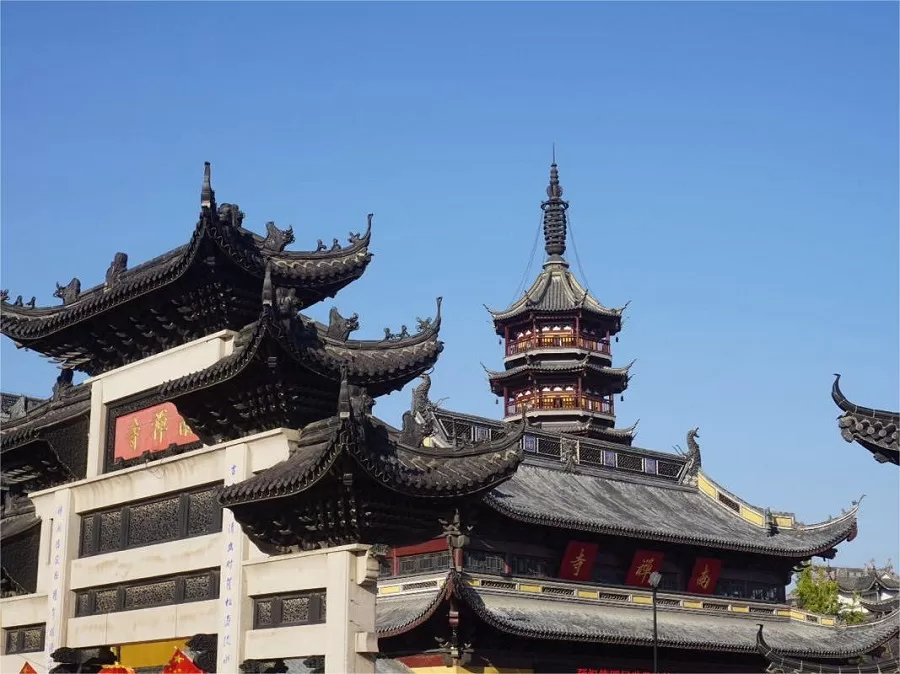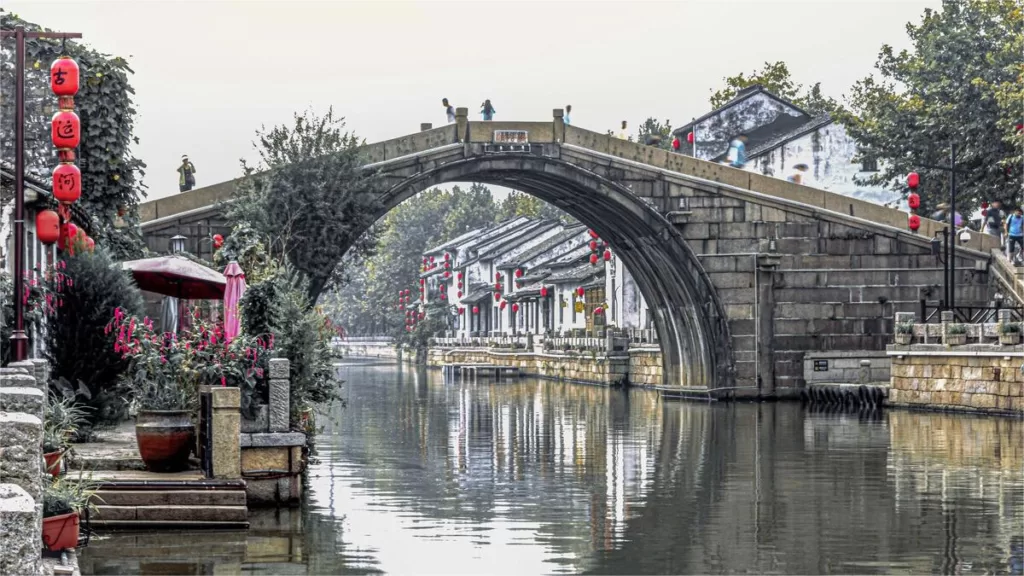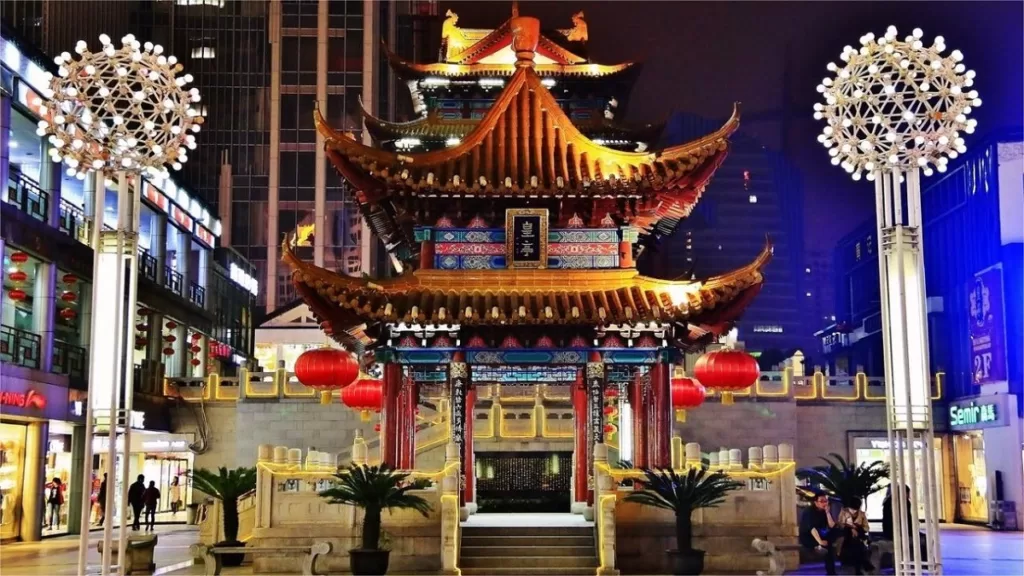Temple Nanchan, Wuxi - Ticekt Prix, heures d'ouverture, emplacement et points forts


Nanchan Temple (南禅寺), also known as Fusheng Chan Yuan, stands as a testament to Wuxi‘s rich history and spiritual heritage. Nestled in the heart of Jiangsu Province, China, this venerable Buddhist temple has a storied past dating back to the Southern Liang Dynasty, tracing its origins to the first year of the Taiqing era in 547 AD. Initially named Huguo Temple, it was one of the 480 temples that graced the landscape during the Southern Dynasties, reflecting its historical significance.
Over the centuries, Nanchan Temple underwent transformative phases, with one of the most notable events being the construction of the Miaoguang Pagoda during the Northern Song Dynasty in 984 AD. It was during the reign of Emperor Renzong in the Northern Song Dynasty, specifically in the years 1023-1031 AD, that the temple underwent significant renovations and was bestowed the name “Fusheng Chan Yuan,” although it is more commonly referred to as Nanchan Temple.
Table des matières
- Informations de base
- Localisation et transport
- Highlights of Nanchan Temple
- Vlog about Nanchan Temple
- Conseils utiles résumés à partir d'études
- Attractions near Nanchan Temple
Informations de base
| Durée estimée de la visite | Environ 2 heures |
| Prix du billet | Gratuit |
| Heures d'ouverture | 7:00 – 16.30 |
| Numéro de téléphone | 0086-0510-82825051 |
Localisation et transport
Situated at 32 Xiangyang Road, Liangxi District, Wuxi, Nanchan Temple enjoys a unique and strategic location. It is positioned in the southern corner of Wuxi’s old city, adjacent to the ancient Grand Canal. This prime location has made it an integral part of the city’s cultural and religious landscape, attracting visitors and pilgrims alike. To get there, you can choose the following ways:
Bus : Take bus 12, 23, 25, 40, 67, 79, 81, 118, 135, 201, 508, or 703, get off at Nanchan Temple Stop (南禅寺站), and walk about 100 meters to the southeast to reach the temple.
Métro : The closest metro station to Nanchan Temple is Nanchansi (南禅寺) on Line 1. After getting out of the station from Exit 7, you will be standing right at the ticket office.
Highlights of Nanchan Temple
Symmetrical Layout

Nanchan Temple spans an impressive area of approximately 7,000 square meters and is divided into two primary sections, the eastern and western precincts. These sections house several remarkable structures, each contributing to the temple’s architectural splendor. Among them, the Tianwang Hall, dedicated to the Heavenly Kings, and the Daxiong Bao Dian, stand as majestic testaments to the spiritual devotion and artistic craftsmanship that have defined the temple for centuries. Additionally, the Miaoguang Pagoda, which is located on the eastern side of the temple grounds, adds a touch of grace and historical significance to Nanchan Temple.
Classic Architectural Style

The temple spans approximately 100 meters from north to south and around 70 meters from east to west. Nanchan Temple’s architectural style distinctly mirrors the characteristics of Buddhist temple construction prevalent in the Jiangnan region during the Ming and Qing dynasties. The wooden framework within the temple is characterized by its simplicity, with beams and pillars joined using traditional Chinese carpentry techniques, eschewing the need for additional supporting layers. The bracket sets (dougong) on the columns, while modest in proportion, are densely arranged. The temple’s eaves are gracefully short, adorned with elegant curves, imbuing the entire complex with a sense of delicate beauty and liveliness. The steeply pitched roofs, with their intricately detailed tilework, add to the overall richness of the architectural design.
Miaoguang Pagoda

The Miaoguang Pagoda, a prominent structure within Nanchan Temple, holds a special place in its history. Initially constructed during the Northern Song Dynasty in the Yongxi era, this pagoda underwent a reconstruction in the 14th year of the Zhengtong era in the Ming Dynasty, which corresponds to the year 1449 AD. The pagoda’s base boasts a diameter of 13.5 meters, with the bottom tier measuring 7.5 meters in diameter. A 3-meter deep enclosed corridor, or ambulatory, surrounds the pagoda, while the pedestal stands at a height of 1.3 meters. The pagoda’s body ascends to a towering height of 36 meters, with each successive tier becoming progressively smaller. At its pinnacle, there is a 6-meter crown, culminating in an impressive overall height of 43.3 meters. The pagoda’s surface is adorned with meticulous carvings, showcasing the exquisite craftsmanship of its era.
Nanchan Temple Pedestrian Street

Nanchan Temple is not only a place of religious significance but also a vibrant hub for cultural activities and experiences. Surrounding the temple, the northern part features buildings designed in the style of the Ming and Qing dynasties, while the southern section showcases ancient architecture influenced by the Song Dynasty. Visitors can explore a plethora of attractions, including a bustling street market offering delectable snacks, antique stalls, a vibrant bird and flower market, and a bookshop to satisfy literary cravings. Food enthusiasts will relish in the offerings within the Mu Guiying Gourmet Street, which serves up treats like Yulan cakes, Qingtuan (glutinous rice cakes), xiaolongbao (steamed soup dumplings), and zongzi (sticky rice dumplings) that are beloved by tourists and locals alike.
Boat Ride

For those seeking a more immersive experience, a boat ride from Nanchan Temple’s dock offers a serene nighttime journey along the ancient Grand Canal of Wuxi. It’s a captivating way to experience the city’s historical charm, all while basking in the ambiance of a bygone era.
Vlog about Nanchan Temple
Conseils utiles résumés à partir d'études
Adjacent Snack Street and Coffee Shop: Next to Nanchang Temple, there is a snack street offering a variety of local dishes and desserts. Beside the Buddhist item circulation area, there is a coffee shop.
Purchase Handicrafts at the Law Material Circulation Area: If you’re interested in buying items like prayer beads, you can find them at the entrance in the Buddhist items circulation area.
Illumination of Miao Guang Pagoda: The Miao Guang Pagoda is illuminated around 18:00. For those interested in night views, arriving at around 16:00 allows time for offerings, exploring the temple, strolling the pedestrian street, having dinner, and then enjoying the night scenery.
Attractions near Nanchan Temple

Musée de Wuxi

Zone panoramique de l'ancien canal du pont de Qingming

Rue Nanchang

Académie de Donglin

Temple de Chongan

Former Residence Of Xue Fucheng
Sites historiques du Jiangsu, Attractions de Wuxi